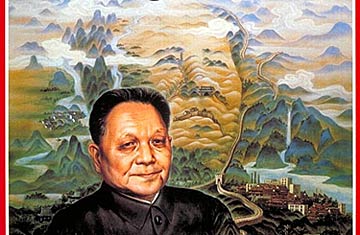
(17 of 20)
Perhaps because he thought he could speak frankly to an old friend, he was lecturing me. He had just been lectured by a congressional delegation headed by Tip O'Neill and was resentful.
"For a century and a half all the foreign powers except the U.S. invaded China," he thundered. "But now you alone are carrying the burden of hate of our people for that century and a half. We want to negotiate a peaceful reunion with Taiwan but, whatever we do, you encourage Taiwan to say no. We offer to let Taiwan keep its own troops, maintain its own social and cultural contacts abroad, make economic arrangements with other countries, but still you encourage them to say no. If Taiwan does not settle with us peacefully, we will settle the problem in any way we think necessary."
Next he turned to the second T, technology. "I want to emphasize this point: even if you won't help us, it will be impossible to obstruct the flow of technology to China." Peng was working himself into a healthy anger for, on technology, the muddle of U.S. policy baffles Americans as much as the Chinese. The U.S. lets India buy sophisticated computers because India is considered a "friendly" state, although its air force is largely equipped with Soviet MiGs and advised by Soviet technicians. China is denied such shipments because it falls under the official category of "Communist state." The classification of Indira Gandhi's India as friendly and China as hostile defies realism.
Later, his eruption subsiding, he let me push him to the Cultural Revolution. He was as indignant about those Chinese crimes as he was about America — furious at the treachery of Lin Biao, the bitcheries of Jiang Qing, above all at the erasure of law in China. He was the author of the new constitution, and that was what it was all about: law, to govern both party and state.
It is on the third T — trade — that U.S. and Chinese futures may most sharply divide. The bureaucrats who direct Chinese foreign trade are the stiffest, most intractable, toughest bargainers in the Orient. Since the resumption of normal relations, Chinese-American trade has boomed to $5 billion, but the Ministry's spokesman fixes on another figure. Of all U.S. imports, only 0.65%* comes from China, and America has run a surplus in trade exchange. I point out that in world trade, surpluses do not balance country by country; we have had a slight surplus with China, a monstrous deficit with Japan. Answer: you import only 0.65% from China. One points out that the National Academy of Engineering has concluded that of America's 2 million textile and garment workers, 1.2 million may be put out of work in the next decade by imports. Answer: you
